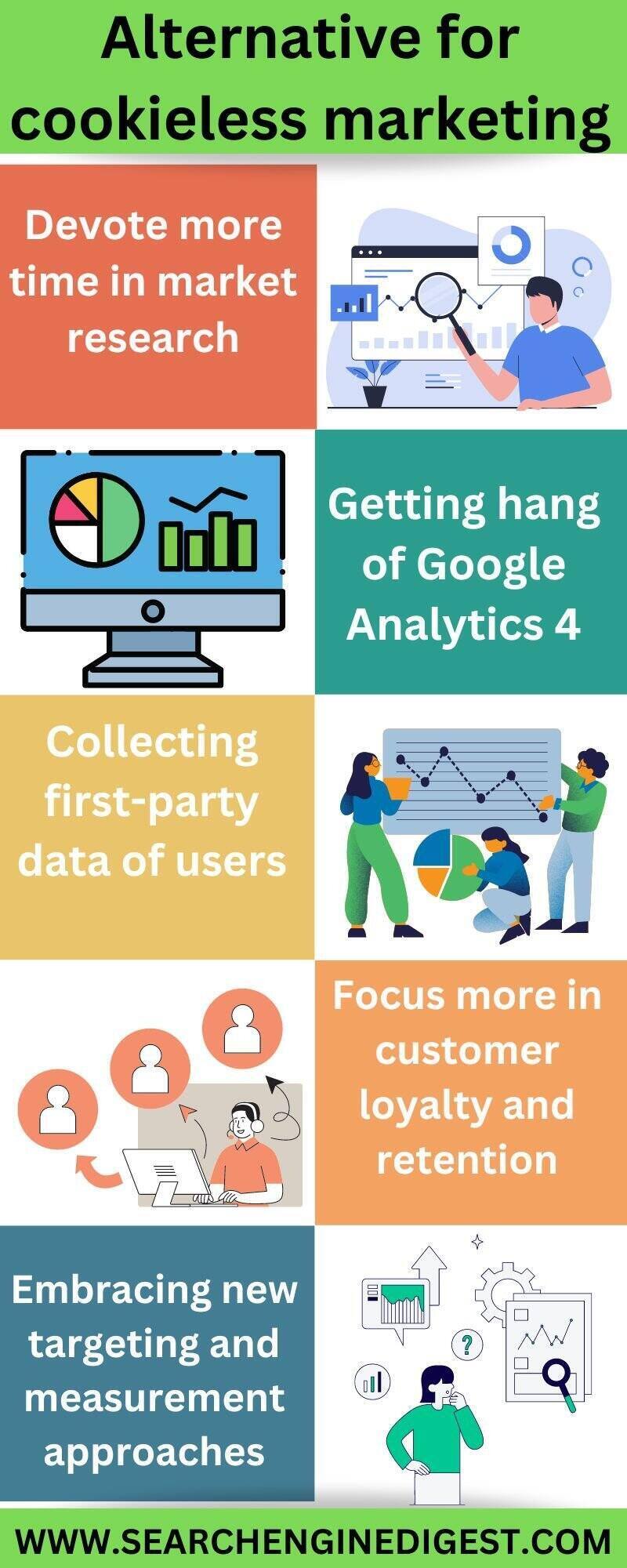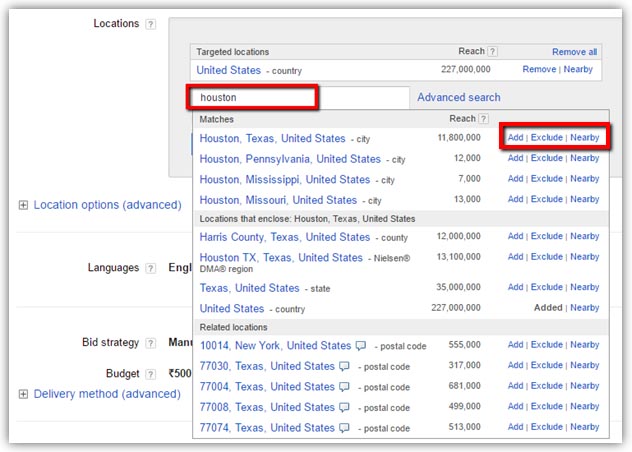Cookies have revolutionized the online advertising industry by enabling websites to remember users’ information and their interests. Since then, websites have been using them to collect user data and enhance user experience by providing relevant information or services. But with Google’s announcement of phasing out third-party cookies, there has been upheaval in the digital marketing world. But the question is, why is this announcement creating a buzz in the market? And how will it affect the business? In this blog, we will understand the need for third-party cookies and the consequences of discontinuing this practice.
What are cookies?
Cookies are a text file with a small piece of data that is stored in your browser. They are used to identify your computer when you use a network. Different cookies are used to identify other users based on their interests to enhance user experience. These are added to the user browser so that a website owner can collect user data and understand website traffic. Suppose you are navigating an online shopping website and switching between pages to find similar types of products; cookies keep you logged in while you are switching between pages and track the shopping cart for you. Whether a visitor has not filled out the form or abandoned a shopping cart, the cookie tracks all the actions of users. These actions allow marketers to understand target audience interests and target ads based on their needs and interests. Cookies also help maintain fewer duplicate records. For example, a user has already filled out a form with an email, and now there is another form with a different email; a website owner can use the cookie information to update the details of a customer without losing information. While Google is phasing out third-party cookies, you need to understand that websites can use first-party cookies to collect user data. In fact, according to Google, first-party data is essential to enhance user experience and build relationships with them. Still not sure about first-party cookies and third-party cookies? Here is a brief explanation.
First-party cookies
A first-party cookie is a code that gets generated and directly stored by the website you visit. These cookies allow website owners to collect user data, enhance user engagement & experience, and remember language settings and other preferences. An example could be the Amazon website, which uses a first-party cookie to collect all data, such as login information, cart details, language settings, etc. For marketers, it is a great tool to access analytics such as the session time of the webpage, geographical demographics, and visitor tracking history.
Third-party cookies
Third-party cookies are created by those websites that you are not visiting. These are usually used for online advertising purposes and placed on a website through script. Although third-party websites are beneficial for marketers to collect audience details to create personalized ads for them, it is a threat to users. These cookies let analytics companies or other websites that users have not visited track a search history without their knowledge. Blocking third-party cookies in your browser history can let you protect your sensitive information, such as your login details, your personal information, and, in some cases, your credit card details. With 46% of consumers believing they lost control over data, it shows how important it is to be cautious while allowing third-party cookies to collect your information. For marketers, third-party cookies are a great source of understanding user behavior, such as frequently visited websites, search history, interests & preferences, and purchases across all websites that enable third-party cookies. Online marketers rely on this data for advertising their products & services to targeted audiences, pop-up ads, and creating go-to-market strategies to increase revenue.
Why has Google started phasing out third-party cookies?
Google is the largest search engine, which accounts for 91.54% of the global search market. This shows Google’s dominance over other search engines. With the latest Google Chrome update of phasing out third-party cookies, marketers are feeling anxious that they will face hardship in tracking the web activity of their potential customers. As per Google, on January 4, they started rolling out a new feature called tracking protection, which restricts access to third-party cookies of 1% of global Chrome users. The shift towards depending on first-party cookies will hinder small businesses that heavily rely upon third-party cookies to collect data for targeting and remarketing the shoppers. Small businesses will have to depend on Google Topics to segment users according to interest groups for leveraging data. But Google’s Privacy Sandbox will allow data to be stored anonymously so that marketers can obtain user data without third-party cookie tracking. Google has introduced the new Topics API for cookie tracking. The Google algorithm will work within the user’s browser and will classify data within a set of high-level interest groups, such as fashion, food, place, etc. to group user interest for targeting.
Alternatives for cookie-less marketing
Google Chrome’s update towards blocking third-party cookies doesn’t mean that businesses have to suffer losses because they don’t have enough data to create an effective marketing campaign. There are some strategies and tips that you can leverage to increase the effectiveness of your marketing campaign without depending on tracking cookies. These are:-

- Devote more time in market research: Whether you are a startup business or have an established company, market research should be a top priority for you to stay updated with the latest changes in consumer behavior and market trends to advertise your brands effectively. When you want to implement an effective digital marketing strategy without depending upon cookies, you need to devote more time to market research. It is a process of gathering and analyzing information about business target markets to discover your customer and their wants or needs. Market research helps you identify and attract a loyal customer base, verify product success & know brand perception, and identify business opportunities. Some ways which could be used by your business to start market research are:-
- Launching targeted surveys
- Interviewing customers to know their needs and wants
- Using social media to understand target market wants
- Performing competition analysis to find marketing trends, SEO trends, PPC trends and business efforts
- Market segmentation and demographics for effective targeted marketing
- Using analytics tools to analyze marketing efforts.
- By analyzing potential consumer behavior and buying intent, you can build a successful advertising campaign without depending upon third-party cookies for data. Choosing a market research method to find a target market based on buyer persona, influence behind customer purchase decisions, and constantly analyzing your findings with a/b testing will help you promote your brand and stay ahead of the competition.
- Getting hang of Google Analytics 4: Google Analytics 4 has many beneficial features that can help in creating effective campaigns without third-party cookies. At the same time, many marketers will not be aware of the fact that Google Analytics 4 supports app and web-based tracking. This reduces the dependence on cookies for accurate tracking. Configuring server-side tagging in Google Tag Manager allows sending data from the website backend directly to the Google server, which enables accurate tracking without depending on third-party cookies for data. Google Analytics 4 advanced AI-driven predictive analysis helps analyze important metrics such as engagement rate, engagement time, and engaged time. It also allows you to predict retargeting campaigns based on AI metrics such as purchase probability, churn probability, and revenue prediction to create based on expected behavior and use Google Ads campaigns to target these audiences and attract them to fulfil your goal and increase the conversion rate of your business. It is suggested that you gain expertise in Google Analytics 4 to master data and insight.

- Collecting first-party data of users: 92% of marketers believe that first-party data is critical to understanding what consumers want to grow their business. This means first-party data collection gives businesses immense opportunities to understand consumer needs and desires so that they can deliver similar products and services and build relationships with them. Some of the methods through which you can collect first-party data are:-
- Online surveys and feedback
- Sign up form
- Newsletter
- Direct mails or email marketing to know their response
- Community polls, etc.
- You can use any method that helps you gain user data. One of the benefits of first-party data is that you have ownership of this data, and you don’t have to buy or depend on third-party cookies to collect information.
- Focus more on customer loyalty and retention: With the removal of third-party data, it is essential to take into consideration increasing customer retention and loyalty. With the depreciation of third-party cookies, acquiring new customers will be difficult for businesses. Improving sales after service, communicating with existing customers to know their needs and desires, asking for feedback, and providing a consistent customer experience can increase customer retention and build loyalty, which can increase your business online presence and attract new customers through word-of-mouth promotion.
- Embracing new targeting and measurement approaches: Testing new targeting approaches such as Google’s Protected Audience API, which provides custom audience and remarketing use cases, and investing more time in contextual-based advertising to increase the effectiveness of campaign performance can help you gain more insight to promote the brand and create awareness about your business. Testing new campaign performance measures such as Attribution Reporting API from Google will enable conversion measurement by maintaining privacy.
PPC marketing without cookies
The world of PPC advertising will also shift without extracting data from third-party cookies. Marketers used to run PPC campaigns by targeting ads to specific audiences. Without third-party cookies, you can rely on some other methods that can help in effective PPC advertisement. These are:-
- Targeting based on location and time: Targeting users based on current location and time, also known as geo-targeting, will help you create personalized ad copy by adding localized keywords and using Google trends to see which region offers huge potential for targeting local customers. For example, getting an email greeting you with a good morning when it’s actually morning in the region will be more personalized and attract local customers in that region. This approach will also be helpful in determining when ads will appear to users.

- Using AI based bidding: The smart bidding feature of Google AI-based bidding determines which keywords generate maximum conversion to maximize efficiency in ad spend and increase return on investment. As a result, you can make targeted bid decisions for every ad auction. These automated bid decisions do not depend on cookies to gather information and create an effective PPC campaign based on location, time, enabled languages, and other relevant customer details.
- Re-evaluate your KPIs: With the phasing out of third-party cookies, you need to revaluate some other Key performance indicators(KPIs) to analyze your PPC campaign performance. Other metrics you need to consider are mobile/web analytics, customer satisfaction metrics, and customer lifetime values. Although classic KPIs such as revenue and customer acquisition cost are equally important, it is also essential to merge new metrics with existing ones to create effective ad campaigns.
- Bonus Tip: The ultimate aim of using third-party cookies to create effective targeted marketing campaigns to increase the ROI of the business and increase brand awareness. Without depending on tracking cookies to collect user information, you can enhance the SEO of your website to attract more customers and promote your business on a large scale. Search engine optimization(SEO) is the process of improving website structure, building backlinks, and creating quality content that imparts some knowledge and provides benefits to the audience. Creating an effective SEO strategy with the help of SEO tools, you build long-lasting relationships with customers and increase organic traffic for your business.
Conclusion
Marketing without third-party cookies seems to be an intimidating task. However, it doesn’t need to be complicated. Collecting first-party data and using different methods that can be helpful in advertising your product and service without depending on cookies can be a significant step to staying ahead of competitors. Remember, every market is facing the same issue. Instead of worrying, following the above-given practice will help you increase awareness of your brand and will give you a competitive advantage to stand ahead in the market.
References:-
-
306, 2024Understanding Google’s preference for crawling high-quality content
Crawling websites is [...]
-
2905, 2024All you should know about third-party cookies by Google
Cookies have revolutionized [...]
-
2405, 2024Helpful content update by Google to enhance website ranking
Google launched a [...]





Leave A Comment